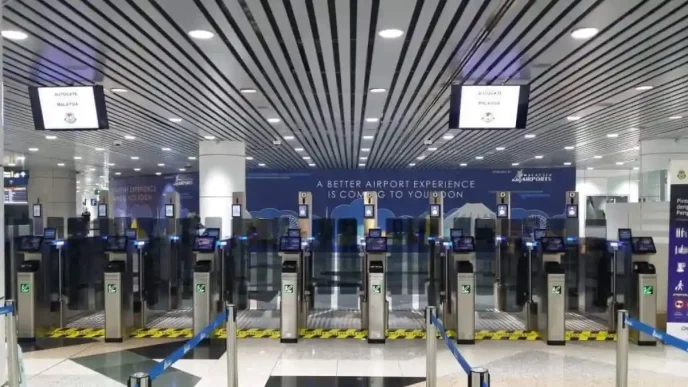In a pioneering move to combat rising health concerns, hoteliers across Malaysia have signed up to the nation’s “war on sugar,” launching an initiative to display calorie and sugar content on food served at their premises. Starting with 72 participating hotels, this campaign, spearheaded by the Malaysia Productivity Corporation’s Tourism Productivity Nexus (TPN) and supported by the Health Ministry, aims to foster healthier eating habits among locals and tourists alike, while positioning Malaysia as a leader in sustainable public well-being in the region.
The Less Sugar Advocacy programme, officially launched on 10 March in Kuala Lumpur, has brought together key industry players, including the Malaysian Association of Hotels, Malaysia Budget and Business Hotel Association, Malaysian Association of Hotel Owners, and Malaysia Healthcare Travel Council. It reflects a growing recognition of the role private sectors can play in public health initiatives, particularly in a country where excessive sugar consumption has been flagged as a pressing issue by no less than Prime Minister Datuk Seri Anwar Ibrahim himself.
“Through healthier practices, we will not only strengthen the hotel industry’s reputation but also contribute towards the country’s productivity agenda,” said TPN Champion Rohizam Md Yusoff during the launch event. He emphasised the importance of collaboration between the government and private sector to ensure the campaign’s success and scalability, adding, “By working together, we can position Malaysia as a destination that prioritises both sustainability and public well-being.”
Health Ministry deputy secretary-general (management) Datuk Zahrul Hakim Abdullah echoed this sentiment, underscoring the government’s commitment to promoting healthy lifestyles. “The campaign by hoteliers is strategic in promoting healthy eating practices in line with sustainable development goals,” he said in his speech. He expressed hope that more hotels would join the initiative, suggesting that Malaysia could become a role model for other countries in the region.
A National Push Against Sugar
This initiative is the latest in a series of efforts by the Malaysian government to address the health risks associated with high sugar intake, which has been linked to rising rates of obesity, diabetes, and other non-communicable diseases. Last year, Prime Minister Anwar Ibrahim urged Malaysians to take health education seriously, specifically highlighting the dangers of excessive sugar consumption. Following his call to action, the “Jom Kosong” campaign was launched by Deputy Domestic Trade and Cost of Living Minister Fuziah Salleh to encourage consumers to reduce sugar in their diets, often by opting for unsweetened beverages and foods.
The involvement of the hotel industry marks a significant expansion of these efforts, targeting not just individual consumers but also the hospitality sector, which plays a crucial role in shaping food culture for both locals and the millions of tourists who visit Malaysia annually. By displaying calorie and sugar content on menus, participating hotels aim to empower diners to make informed choices, a move that could set a precedent for other industries.
Why Hotels?
Hotels are uniquely positioned to influence eating habits, given their role as food providers for a diverse clientele. From buffet breakfasts to room service, the hospitality sector serves millions of meals each year, often with little transparency about nutritional content. This initiative seeks to change that by making sugar and calorie information readily available, aligning with broader global trends towards health-conscious travel and dining.
For the hotel industry, the benefits are twofold. Not only does participation enhance their reputation as socially responsible businesses, but it also aligns with Malaysia’s broader productivity and sustainability agendas, as highlighted by Rohizam Md Yusoff. Hotels that adopt these practices may attract health-conscious travellers, a growing demographic in the post-pandemic era, while contributing to national health goals.
However, the voluntary nature of the programme raises questions about its long-term impact. With only 72 hotels currently on board, the initiative covers just a fraction of Malaysia’s vast hospitality sector. While Datuk Zahrul Hakim Abdullah expressed optimism about expanding participation, there are no indications yet of whether the government plans to make such disclosures mandatory or offer incentives for compliance. If participation remains limited, the campaign’s effectiveness in driving widespread change could be constrained.
Broader Implications for Public Health
Malaysia’s “war on sugar” comes at a time when public health experts across South East Asia are sounding the alarm over dietary habits. The region has seen a sharp rise in lifestyle-related diseases, with sugar-sweetened beverages and processed foods often cited as major contributors. According to data from the World Health Organization, non-communicable diseases account for a significant portion of premature deaths in the region, placing immense pressure on healthcare systems.
By targeting the hospitality industry, Malaysia is taking a novel approach to a regional problem. If successful, the Less Sugar Advocacy programme could inspire similar initiatives in neighbouring countries like Thailand and Indonesia, where tourism and hospitality are also major economic drivers. Datuk Zahrul’s vision of Malaysia as a role model is ambitious but not without merit, given the country’s growing reputation as a hub for medical tourism through initiatives like the Malaysia Healthcare Travel Council.
Yet, challenges remain. Changing consumer behaviour is no small feat, especially in a cultural context where sweet foods and drinks are often synonymous with hospitality and celebration. While displaying nutritional information is a step forward, it does not address deeper issues such as the affordability and availability of healthier food options. Hotels may need to go beyond labelling to reformulate menus, a process that could involve significant costs and logistical hurdles.
A Step Towards Sustainability
The alignment of this campaign with sustainable development goals (SDGs), as noted by Datuk Zahrul, adds another layer of significance. Specifically, it ties into SDG 3, which focuses on ensuring healthy lives and promoting well-being for all. By integrating health priorities into the tourism sector, Malaysia is demonstrating how public and private sectors can collaborate to address global challenges, from health crises to environmental sustainability.
There is also a speculative angle to consider: if hotels can successfully reduce sugar consumption among guests, could this pave the way for broader food system reforms? Some public health advocates suggest that such initiatives might eventually influence food manufacturers and retailers to prioritise healthier products, though this remains unconfirmed and would depend on sustained government and industry commitment. For now, no evidence confirms that the current programme will have such far-reaching effects, but the potential is worth exploring.
Looking Ahead
As the Less Sugar Advocacy programme rolls out, its success will likely hinge on public reception and the willingness of more hotels to join. Consumer awareness campaigns, perhaps building on the momentum of “Jom Kosong,” could play a crucial role in ensuring that diners pay attention to the new calorie and sugar labels. Meanwhile, the government and TPN will need to monitor the initiative’s impact, potentially using data from participating hotels to assess changes in consumer behaviour.
For now, Malaysia’s hoteliers have taken a commendable first step in the nation’s “war on sugar.” Whether this initiative sparks a broader movement towards healthier lifestyles remains to be seen, but it undeniably sets a positive tone for the intersection of public health and private enterprise. As Datuk Zahrul Hakim Abdullah aptly put it, this campaign is not just about reducing sugar—it’s about building a healthier, more sustainable future for Malaysia and beyond.














